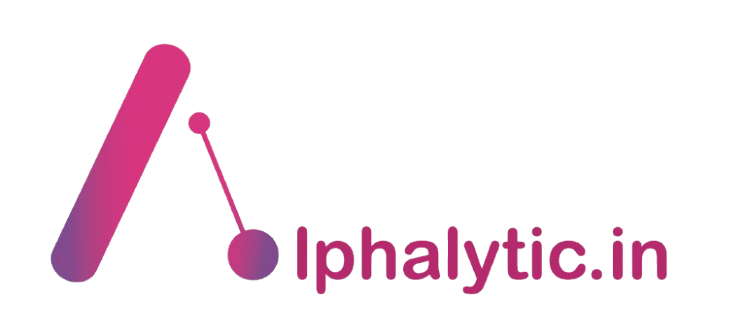CRM for Healthcare: Patient Relationship Management Systems
Adapting CRM Principles to Improve Patient Engagement and Care Coordination
The healthcare industry is undergoing a profound transformation driven by patient-centric care, digital innovation, and the increasing demand for personalized experiences. In this evolving landscape, Customer Relationship Management (CRM) systems — traditionally used in sales and marketing — are being adapted to meet the unique needs of healthcare providers. This has given rise to Patient Relationship Management (PRM) systems, a specialized form of CRM tailored to enhance patient engagement, streamline care coordination, and improve overall health outcomes.
This article explores how healthcare organizations can leverage CRM principles and technologies to build stronger patient relationships, enable seamless communication, and support coordinated care delivery.
1. Understanding CRM in Healthcare: The Rise of Patient Relationship Management
CRM systems are designed to manage interactions between organizations and their customers, helping to improve satisfaction, retention, and service delivery. When applied to healthcare, CRM evolves into Patient Relationship Management, focusing on the management of patient data, communication, and engagement across the continuum of care.
PRM systems help healthcare providers move beyond episodic care encounters toward a continuous, personalized relationship with patients. This shift aligns with broader industry trends such as value-based care, where patient outcomes and experiences are central.
Key Differences Between Traditional CRM and PRM:
- Focuses on patients instead of customers.
- Incorporates sensitive healthcare data with strict compliance to privacy regulations (e.g., HIPAA in the U.S.).
- Supports clinical workflows and integrates with Electronic Health Records (EHRs).
- Emphasizes care coordination, appointment management, and health education.
2. Core Features of Healthcare CRM/PRM Systems
Effective patient relationship management platforms typically include:
- Patient Data Management: Centralized storage of patient demographics, medical history, appointment records, and communication preferences.
- Multi-Channel Communication: Secure messaging, appointment reminders via SMS/email, telehealth integration, and follow-up notifications.
- Personalized Patient Engagement: Tailored educational content, wellness programs, and reminders for medication or screenings.
- Care Coordination Tools: Facilitating communication between primary care providers, specialists, and care teams to ensure seamless patient journeys.
- Analytics and Reporting: Insights into patient behavior, appointment adherence, satisfaction scores, and outcomes to optimize care delivery.
3. Enhancing Patient Engagement Through CRM
a. Personalized Communication
CRM systems enable healthcare providers to tailor communications based on patient preferences, conditions, and history. For example:
- Sending targeted reminders for vaccinations or screenings.
- Providing condition-specific educational resources.
- Delivering customized wellness tips or support programs.
b. Real-Time Interaction
With integrated chatbots and virtual assistants, patients can receive instant responses to common queries, schedule appointments, or request prescription refills without waiting on hold.
c. Patient Self-Service
Patient portals integrated with CRM systems empower patients to manage appointments, view test results, and communicate securely with their care team, enhancing autonomy and satisfaction.
4. Improving Care Coordination and Operational Efficiency
Healthcare CRM platforms break down communication silos between various caregivers and departments by:
- Providing a unified patient record accessible to all care team members.
- Automating referral tracking and follow-up appointments.
- Enabling task management for care teams to ensure timely interventions.
- Reducing no-shows and administrative overhead through proactive reminders.
This improved coordination helps prevent gaps in care, avoid duplicated tests, and enhance chronic disease management.
5. Compliance and Security Considerations
Healthcare data is among the most sensitive, requiring strict adherence to data privacy laws such as HIPAA, GDPR, and other regional regulations. CRM systems used in healthcare must:
- Support data encryption, role-based access control, and audit trails.
- Provide patients with control over their data and communication preferences.
- Ensure secure integration with EHR and other clinical systems.
Compliance is essential not only for legal reasons but also to maintain patient trust and confidence.
6. Real-World Examples of CRM Impact in Healthcare
- Cleveland Clinic implemented a CRM-driven patient engagement platform, resulting in improved appointment adherence and higher patient satisfaction scores.
- Mount Sinai Health System uses CRM tools to personalize patient outreach for chronic disease management programs, leading to better health outcomes.
- Several telehealth providers integrate CRM with virtual care platforms to offer seamless patient support and follow-up.
7. Challenges in Implementing CRM in Healthcare
- Integration Complexities: Combining CRM with legacy EHR systems can be technically challenging.
- Data Privacy: Ensuring compliance while enabling data sharing across systems.
- Change Management: Training healthcare staff to use CRM effectively and fostering patient adoption.
- Customization Needs: Off-the-shelf CRM products often require significant tailoring to fit healthcare workflows.
8. The Future of CRM in Healthcare
Emerging trends that will shape healthcare CRM include:
- AI-powered personalization for tailored patient journeys and predictive health interventions.
- Voice-enabled assistants to facilitate hands-free patient engagement.
- IoT integration for real-time health monitoring data feeding into CRM systems.
- Blockchain to enhance security and data interoperability across providers.
Healthcare CRM is set to play a pivotal role in transforming patient care into a more connected, personalized, and proactive experience.
Conclusion
Adapting CRM principles to healthcare through Patient Relationship Management systems offers a powerful pathway to improve patient engagement, streamline care coordination, and ultimately enhance health outcomes. By integrating personalized communication, data-driven insights, and secure collaboration tools, healthcare providers can build stronger patient relationships in an increasingly digital and patient-centric world.
